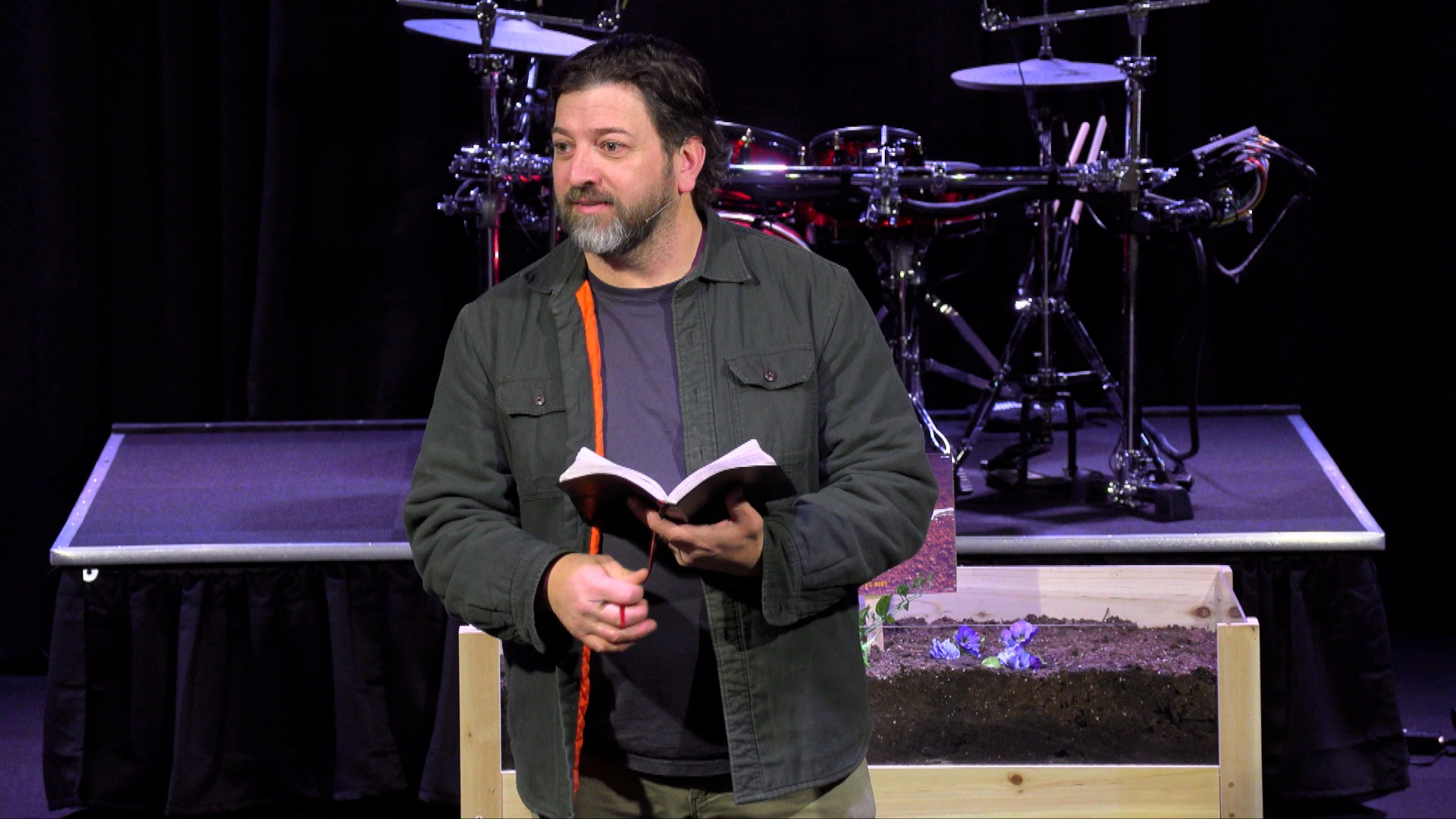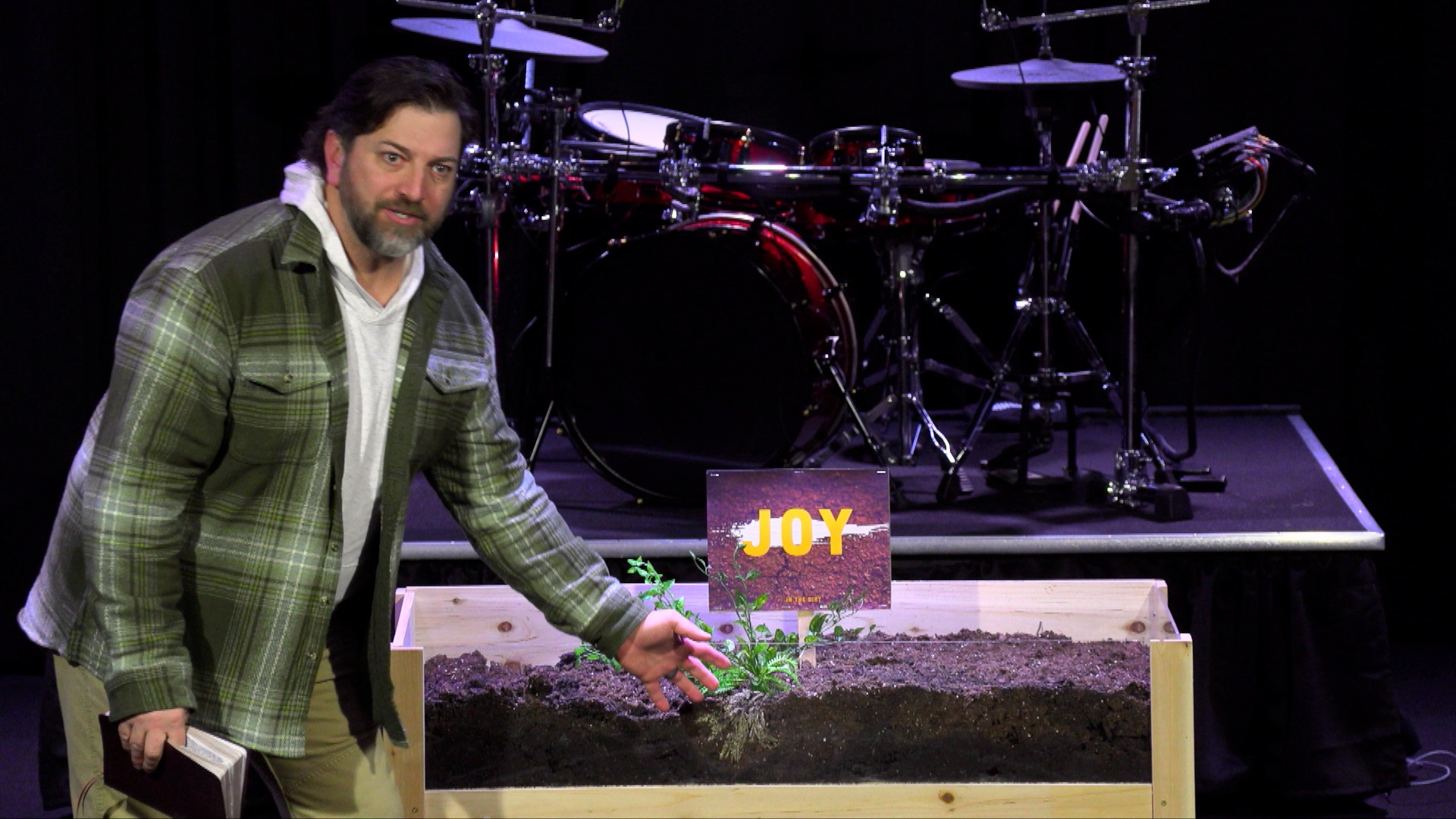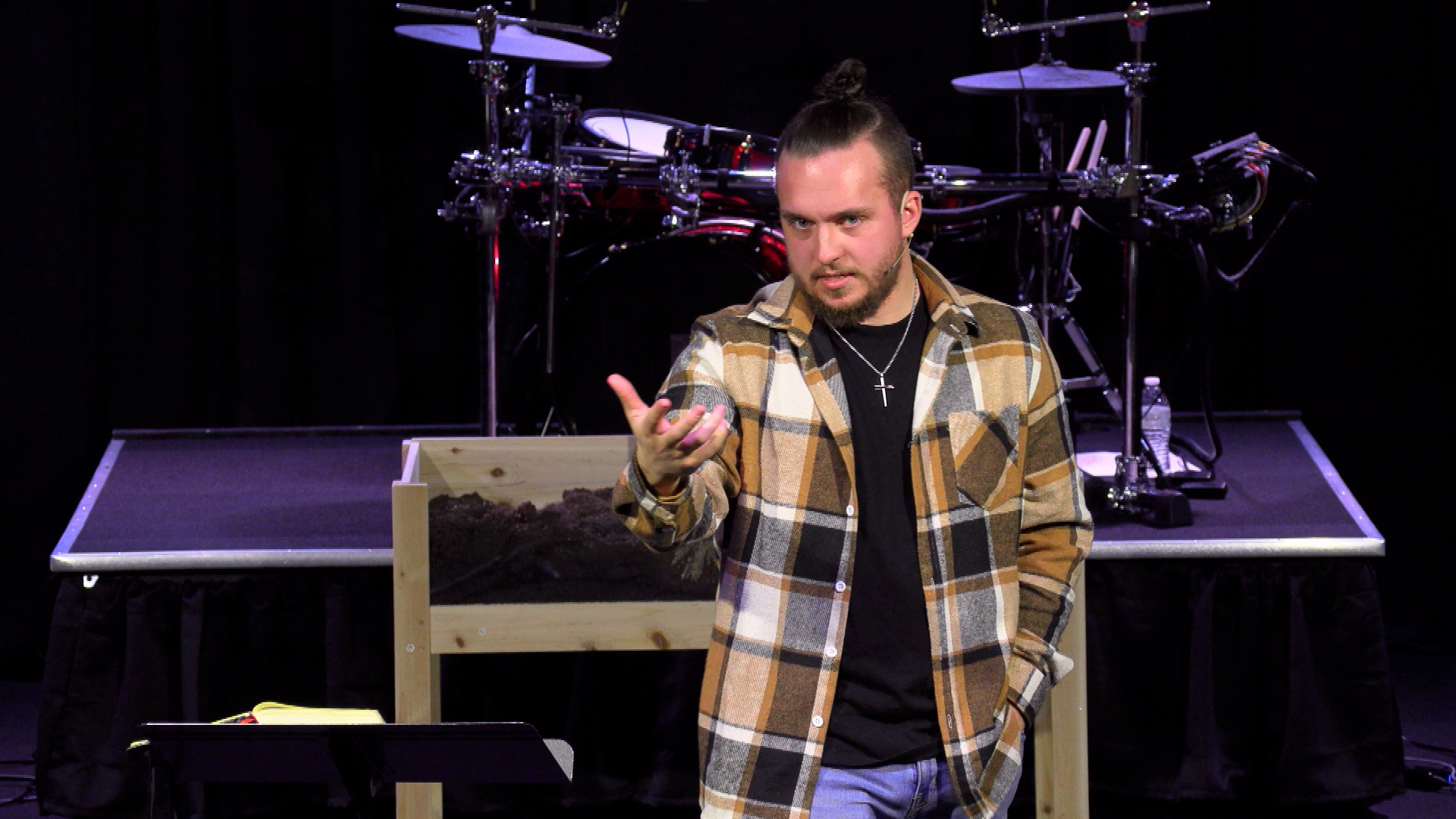Grace Orwigsburg
Sundays @ 9:00 and 10:30am
Grace Tremont
Sundays @ 9:00am
Grace Online
Sundays @ 9:00 and 10:30am
Faith in the Mud
- November 16, 2025 / Joshua Ott
Faith doesn’t shut down when life gets messy—it’s actually made for it. In John 9, Jesus meets a man born blind, turns a painful lifelong struggle into a place for God to show up, and shows us that our hard seasons aren’t punishment but invitations to trust Him, take the next step, worship in the middle of the chaos, and see Him more clearly—even in the mud. Faith doesn’t avoid the mess—it finds Jesus in it. Your faith was made for the mess.
KEY VERSES:
- John 9:1–41
- Leviticus 13
- Leviticus 14
- Romans 8:28
- John 8:11
- John 8:12
- John 9:5
- John 16:33
- Matthew 5:45
HIGHLIGHTS:
- Intro: Faith in the mud
- Wrapping up the “Nameless Faith” series – looking at people whose names we don’t know, but whose faith Jesus points out.
- Today: What faith looks like in the mess, not when life is neat and tidy. (John 9)
- Reality check: most of us didn’t walk in with everything perfect—relationships, health, work, money, emotions.
- 1) Faith in the mess sees possibility, not punishment (John 9:1–5; Romans 8:28)
- Jesus sees the man born blind; the disciples only see a theology question.
- They ask a bad question: “Who sinned, this man or his parents?” (John 9:2)
- Jesus shuts that down: “Neither… but this happened so that the works of God might be displayed in him.” (John 9:3)
- Lie #1: “Suffering = punishment from God.”
- Truth: God uses even hard stuff as opportunity to show His work and grow us (Romans 8:28).
- Lie #2: “It’s always been this way, so it always will be.”
- Truth: With Jesus, long-term pain can still become a brand-new story.
- 2) Faith in the mess is deeply personal (John 9:6–7; John 8:12; John 9:5)
- Jesus spits in the dirt, makes mud, and rubs it on the man’s eyes (John 9:6).
- He didn’t need the mud to heal—so why?
- Picture of God getting His hands “dirty,” stepping close, and dealing with brokenness in a very personal way.
- Point: Faith isn’t just believing ideas about God; it’s a real, messy, up-close relationship with Jesus, the “light of the world” (John 9:5; 8:12).
- 3) Faith in the mess struggles forward (John 9:7; John 16:33)
- Jesus tells a blind man with mud on his eyes, “Go, wash in the Pool of Siloam.” (John 9:7)
- No directions. No instant fix. Just, “Go.”
- He stumbles his way there and “came home seeing.” The healing happens in the going, not before.
- Faith often looks like moving forward when you still can’t see the outcome.
- Jesus promised: “In this world you will have trouble… but take heart! I have overcome the world.” (John 16:33)
- 4) Faith in the mess stands when others question or bail (John 9:8–25)
- Neighbors argue about his identity: “Is this really the same guy?” (John 9:8–9)
- Religious leaders interrogate him, more worried about rules than his healing (John 9:13–17).
- His parents distance themselves out of fear (John 9:18–23).
- He finally says the famous line: “One thing I do know. I was blind but now I see!” (John 9:25)
- He doesn’t have all the answers—but he stands on what Jesus has done in his life.
- 5) Faith in the mess worships (John 9:35–38)
- He gets thrown out by the religious crowd… and Jesus goes looking for him (John 9:35).
- Jesus reveals who He is; the man says, “Lord, I believe,” and worships Him (John 9:38).
- Real faith doesn’t wait for life to calm down—it worships in the middle of the chaos.
- 6) Faith in the mess sees what religion misses (John 9:39–41; Matthew 5:45)
- Religious people see a rule-breaker; Jesus sees a person to restore.
- They see a problem to argue about; Jesus sees a story to redeem.
- God sends “sun and rain” on all kinds of people (Matthew 5:45) – His grace is bigger than our categories.
- Faith doesn’t get stuck on spiritual scorekeeping; it keeps coming back to Jesus Himself.
- Closing challenge
- Where are you assuming “punishment” instead of looking for possibility?
- Will you let faith get personal and messy, not just religious and distant?
- Can you stumble forward, stand on what God’s already done, worship where you are, and keep your eyes on Jesus instead of just the mess?
TALK ABOUT IT:
- Where in your life have you quietly assumed, “This must be God punishing me” — and how does Jesus’ response in John 9 challenge that view?
- The disciples talk about the blind man; Jesus moves toward him. In what situations do you find it easier to analyze people than to actually care for them?
- Can you relate to the idea of “struggling forward” in faith? What does your version of walking to the Pool of Siloam look like right now?
- What is your “one thing I know” story — a way Jesus has changed you that no one can argue away?
- Have you ever experienced church or religion focusing more on rules, appearances, or blame than on people and grace? How did that shape your view of God?
- Where do you most need to stand your ground on God’s promises instead of letting other people’s opinions define you?
- What would it look like for you to worship in your current mess instead of waiting until everything is fixed?
- Is there an area of your life where you’ve said, “It’s always been this way, so it always will be”? What might change if you invited Jesus into that specific place?
APPLY IT:
- Flip the story in your head. When something hard happens, pause and ask, “What if this isn’t punishment? What if this is a place where God wants to work in me or through me?” (John 9:3; Romans 8:28)
- Talk to Jesus like He’s actually there. Set aside 5–10 minutes this week to honestly tell Him what’s messy, confusing, or painful. No churchy language, just real words.
- Take one “muddy” step of obedience. Do the next right thing you sense God nudging you toward—even if you can’t see how it will fix anything. Think “go to the pool” before “feel totally ready.” (John 9:7)
- Stand on your “one thing I know.” Write down one clear way God has helped you, rescued you, or changed you. When doubt or criticism hits, come back to that: “I was blind, but now I see.” (John 9:25)
- Shift from debating people to loving them. This week, when you’re tempted to pick apart someone’s choices, instead ask, “How can I encourage, serve, or listen to them?” (John 9:2–3)
- Let faith be personal, not just informational. Move beyond listening to sermons and actually talk with Jesus about what hit you. Ask Him, “What are you saying to me in this?”
- Practice gratitude in the middle of the mess. Each day, name three specific things you’re thankful for—even while hard stuff is still unresolved. Gratitude helps you “see” where God is already at work.
- Worship when it doesn’t feel natural. Put on a worship song in the car, at home, or on a walk and intentionally sing or reflect—even if you’re tired, confused, or discouraged. Let worship be your response, not just your reward. (John 9:38)
- Ask God to rewrite your “always been” story. Whatever you’ve labeled as “this is just how I am / how it is,” invite Jesus into it and ask Him to change what you’ve assumed is permanent.
- Look for someone else in the mud. Reach out to a friend who’s struggling. Text, call, or grab coffee simply to let them know you see them and they’re not alone.




Born and raised in Schuylkill County, Josh is passionate about Grace being a church that reaches the entire county. He drives the vision, content, clarity, and leadership cohesion at our church. Josh loves old Harleys, fly-fishing, and Philly sports, but not nearly as much as a he loves spending time with his family.